For a hands-on learning experience to develop Agentic AI applications, join our Agentic AI Bootcamp today. Early Bird Discount
Learn to build agents, not just apps. Automate reasoning, planning, context retrieval and execution.






The Agentic AI Bootcamp is designed for professionals who already understand the basics of LLMs and are ready to take the next leap, building intelligent, autonomous AI agents using real-world tools and techniques.
You’ve worked with LLMs—now learn to build systems that reason, plan, and act. This bootcamp teaches you how to integrate tools like LangChain, vector databases, and RAG to build truly agentic workflows.
Take your technical skills further by deploying LLM-powered agents in production environments. Learn how to connect APIs, fine-tune performance, and handle edge cases in real-time applications.
Go beyond prompts. Understand the architecture behind AI agents and how to design agentic workflows that solve complex problems, automate internal processes, or power new customer-facing products.
Learn from thought leaders at the forefront of building Agentic AI applications.
Overview of the topics and practical exercises.
Gain a solid grounding in how reasoning-enabled agents extend traditional LLMs, exploring their building blocks, memory strategies, and design patterns through lectures, discussions, and hands-on labs.
Key Topics:
Learn to build robust, modular LLM-powered applications with LangChain. Explore its core components, retrieval workflows, and chaining logic through lectures, discussions, and hands-on labs.
Key Topics:
Master the art of orchestrating context-aware, dependable agentic systems. This module teaches you how to structure prompts, manage memory, integrate tools, and coordinate agents using LangGraph and proven design strategies.
Key Topics:
Learn how to design, optimize, and integrate vector databases with agentic retrieval-augmented generation (RAG) workflows. Explore embeddings, hybrid retrieval, caching, and observability while implementing advanced reasoning-driven search pipelines.
Key Topics:
Learn agentic design patterns that improve LLM performance by structuring reasoning, control, and coordination.
This module presents agentic design as a pattern language — describing recurring solutions that make LLM applications more consistent, scalable, and capable across complex tasks.
Key Topics:
Learn how to design, coordinate, and monitor multiple agents working together on complex problems. This module focuses on orchestration strategies, planning flows, delegation, and shared resources for scalable agentic systems.
Key Topics:
Understand how agents communicate, discover capabilities, and coordinate tasks through standardized protocols. Learn how MCP, A2A, and ACP enable secure, scalable cooperation between intelligent systems, and practice implementing protocol-driven workflows.
Key Topics:
Learn how the Model Context Protocol (MCP) standardizes and secures LLM access to tools, data, and context. Explore protocol structure, operations, and security—and how MCP plugs into reflection, planning, tool use, and multi-agent workflows across end-to-end agent pipelines.
Key Topics:
Learn how to assess the reliability, safety, and effectiveness of LLM-based agents. Explore benchmarking methods, text-quality metrics, and RAG-specific evaluation frameworks to ensure business, ethical, and technical alignment.
Key Topics:
Apply everything you’ve learned by designing and testing a complete multi-agent application. Work through structured phases from idea to production-ready prototype, incorporating version control, automated testing, and monitoring to ensure reliability and continuous improvement.
Project Tracks:
Attendees Will Receive:
Learners Can Choose to Implement:
Outcome:
By the end of this project, you’ll have a fully functional, production-ready multi-agent application that demonstrates your mastery of reasoning, retrieval, tool use, and protocol-driven interoperability.
Earn a verified certificate from The University of New Mexico Continuing Education:
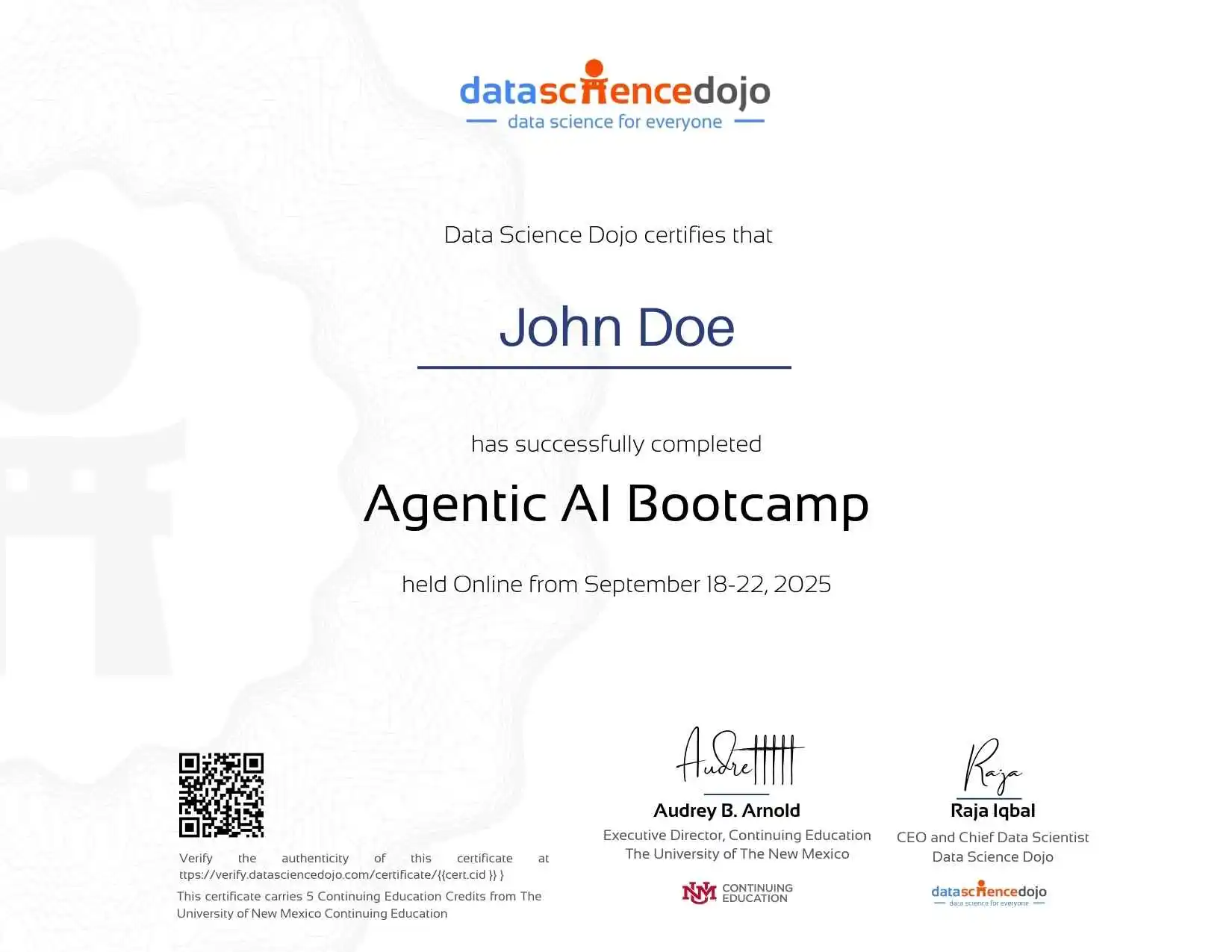
All of our programs are backed by a certificate from The University of New Mexico, Continuing Education. This means that you may be eligible to attend the bootcamp for FREE.
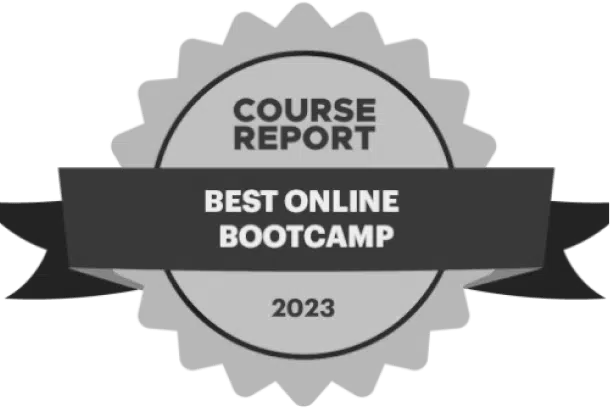
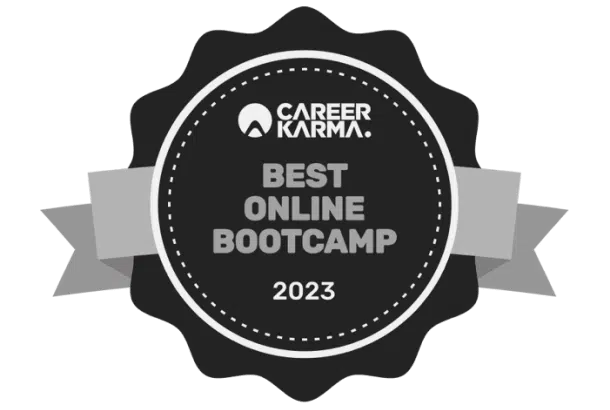
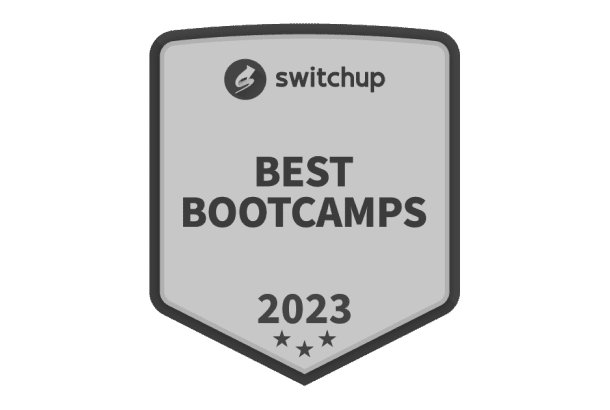
Learn to build Agentic AI applications from leading experts in industry.



























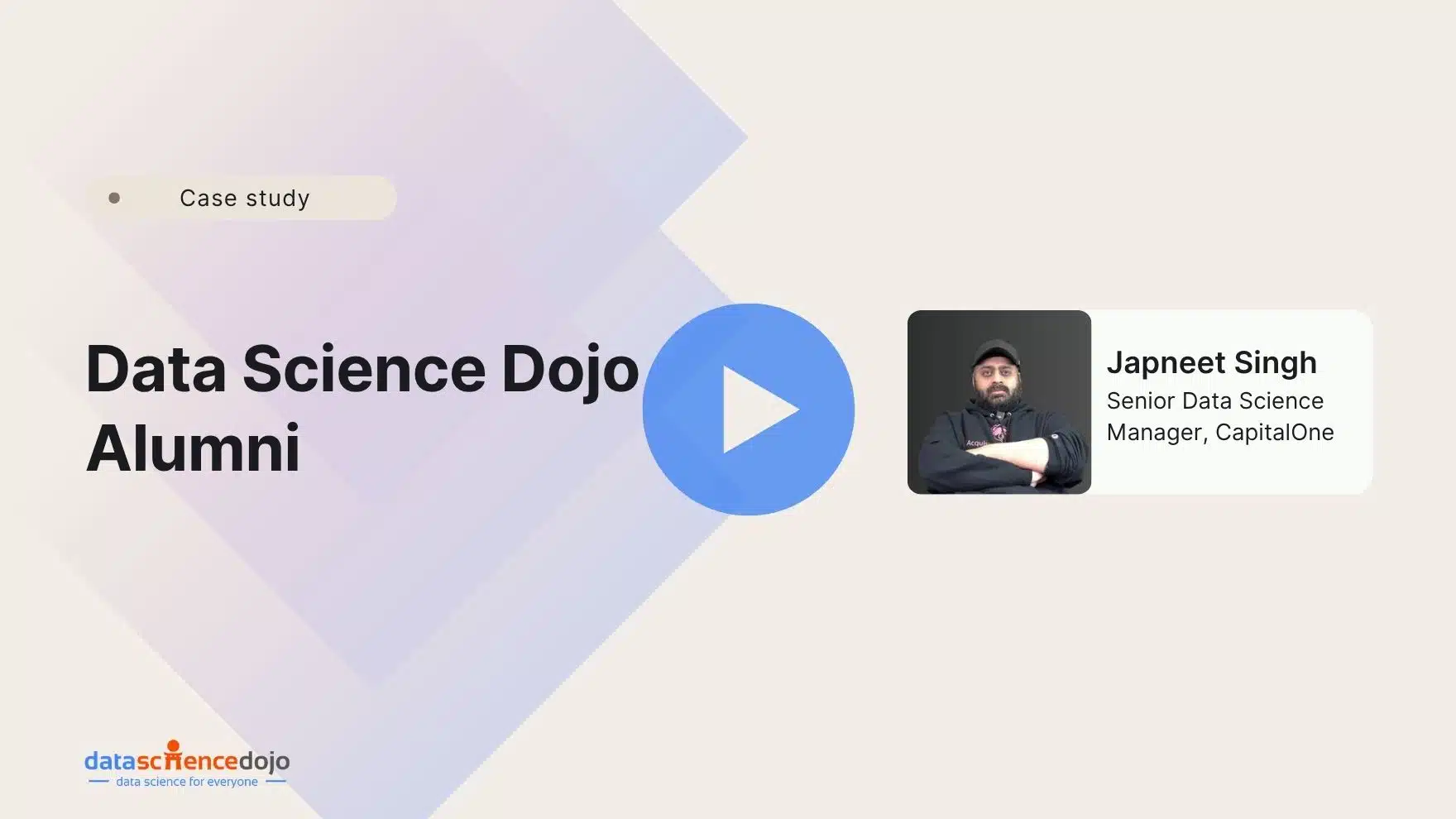
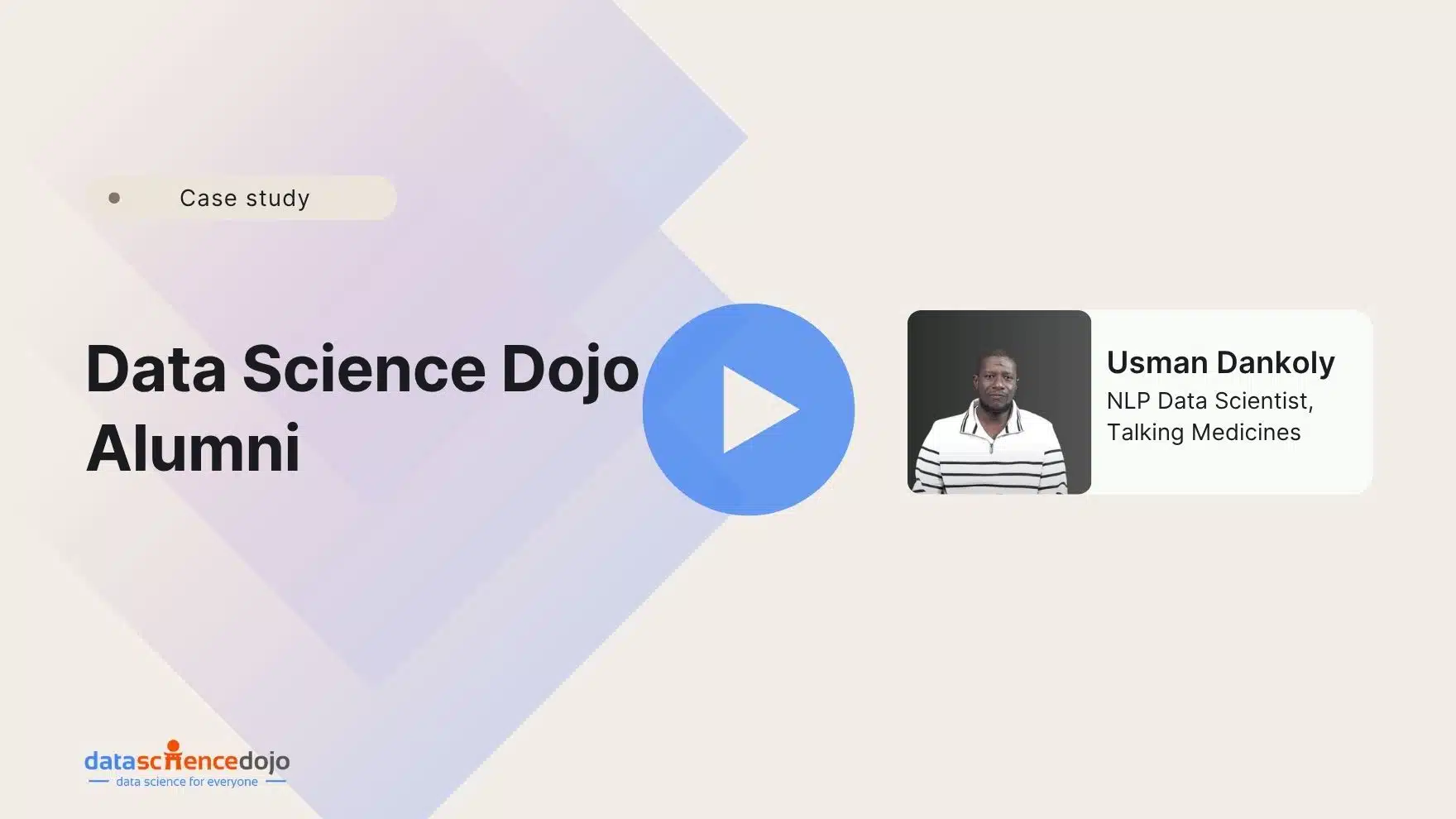
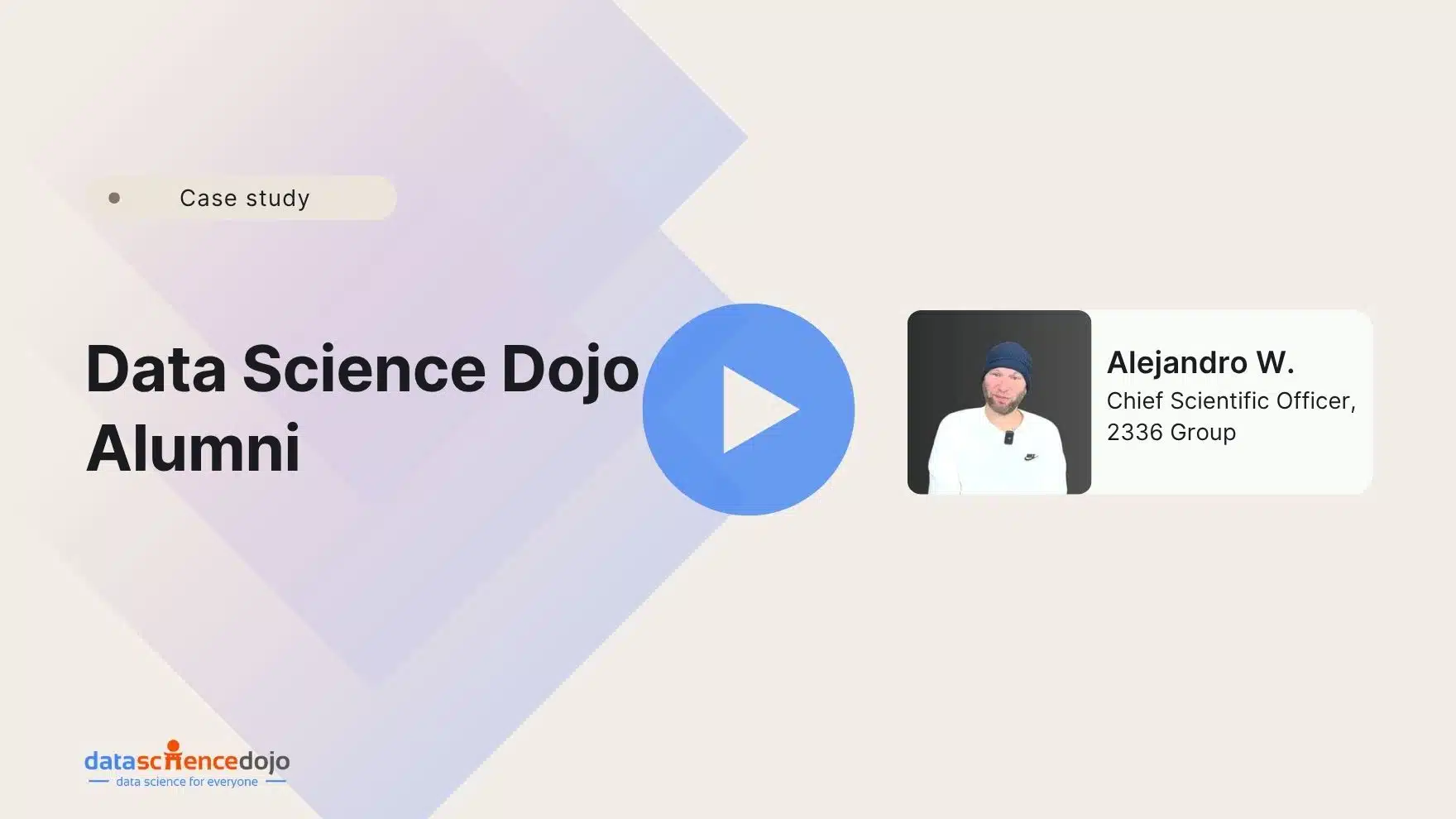
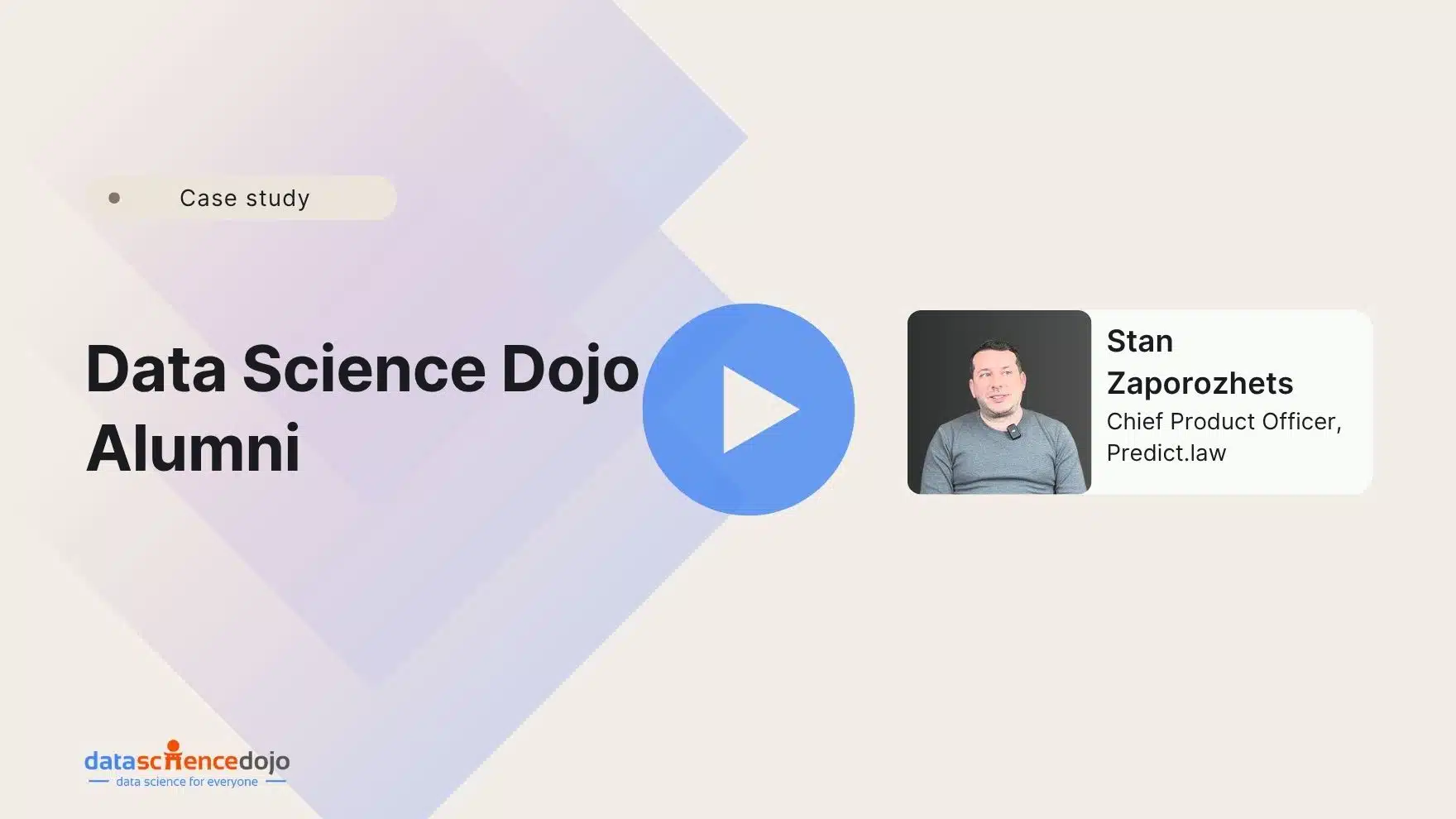
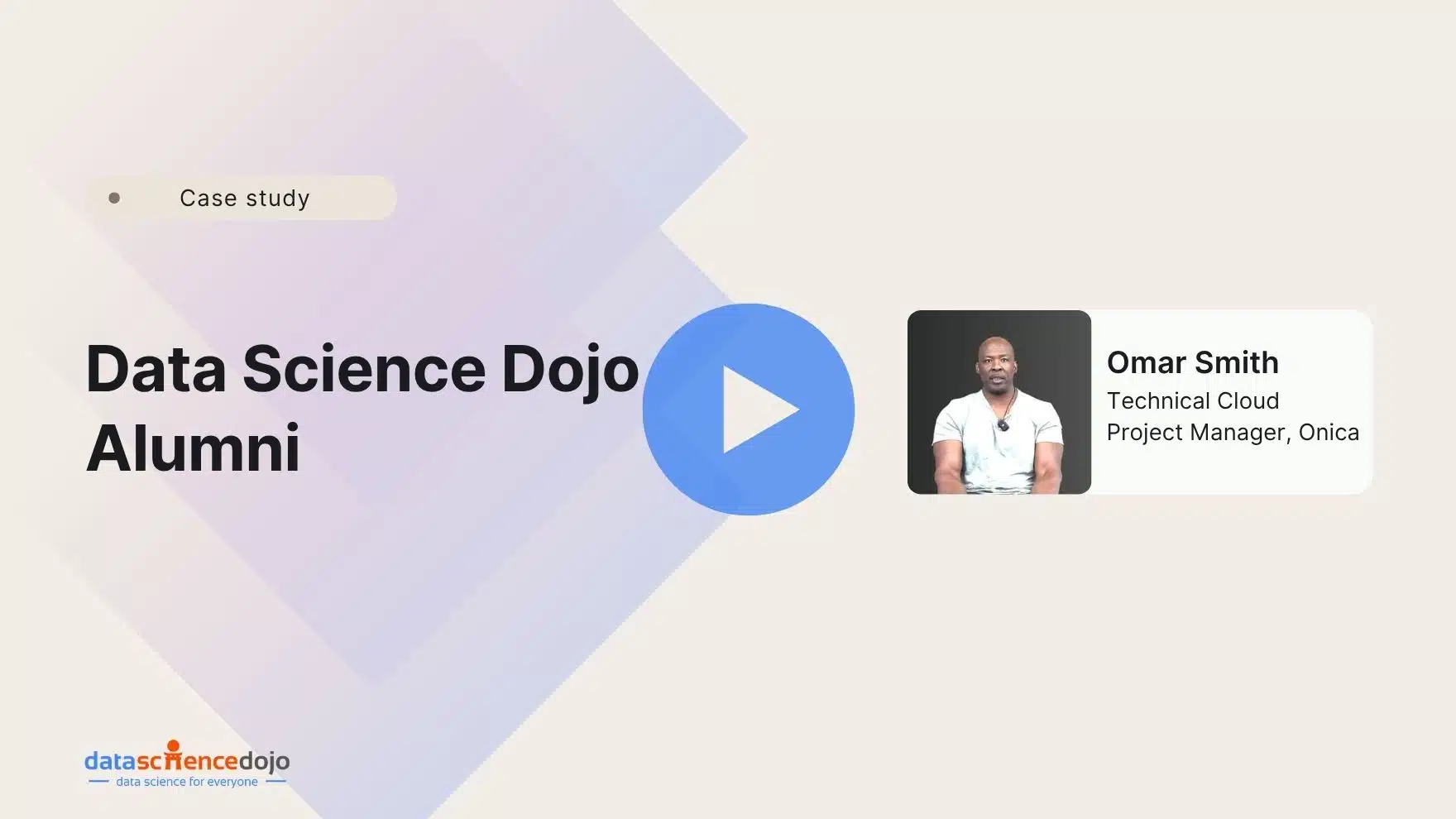
The Agentic AI bootcamp is designed for both technical and non-technical professionals, including engineers, product managers, and business leaders alike. While it includes high-level modules on AI fundamentals, prompt engineering, and strategic deployment, it also dives deep into technical components for developers.
The bootcamp is a 10-week, 30-hour program.
Yes. You will receive a certificate from The University of New Mexico with 3 CEUs.
Yes, participants who complete the bootcamp will receive a certificate of completion in association with the University of Mexico. This certificate can be a valuable addition to your professional portfolio and demonstrate your expertise in building large language model applications.
The LLM bootcamp covers the fundamentals of large language models and takes you through a complete learning track—from the basics to deployment.
In contrast, the Agentic AI bootcamp focuses specifically on building and deploying AI agents, so we dive straight into hands-on development.
Yes, these sessions are live and are designed to be highly interactive.
When you join the Agentic AI bootcamp, you will receive:
While we do not provide exact recordings of the live sessions, all key topics and content covered during the class are available in our companion courses. We’ve created structured lesson clips that reflect the material discussed, allowing you to review everything at your convenience even if you miss a live session.
You need a very basic level of Python programming for our Agentic AI bootcamp.
The preparatory material will be shared about two weeks before the bootcamp starts. You’ll receive an email with access details and instructions closer to the start date.
No, cloud subscriptions are not included. Participants will need to use their own accounts.
Transfers are allowed once with no penalty. Transfers requested more than once will incur a $200 processing fee.
If, for any reason, you decide to cancel, we will gladly refund your registration fee in full if you notify us at least five business days before the start of the training. We can also transfer your registration to another cohort if preferred.
However, refunds cannot be processed if you have transferred to a different cohort after registration. Additionally, once you have been added to the learning platform and have accessed the course materials, we are unable to issue a refund, as digital content access is considered program participation.
While we do not specifically focus on job placement, we actively promote networking with our partners, attendees, and an extensive network of alumni. Once you register for the bootcamp, we are happy to assist with introductions if you’re looking to connect with professionals in your desired field.